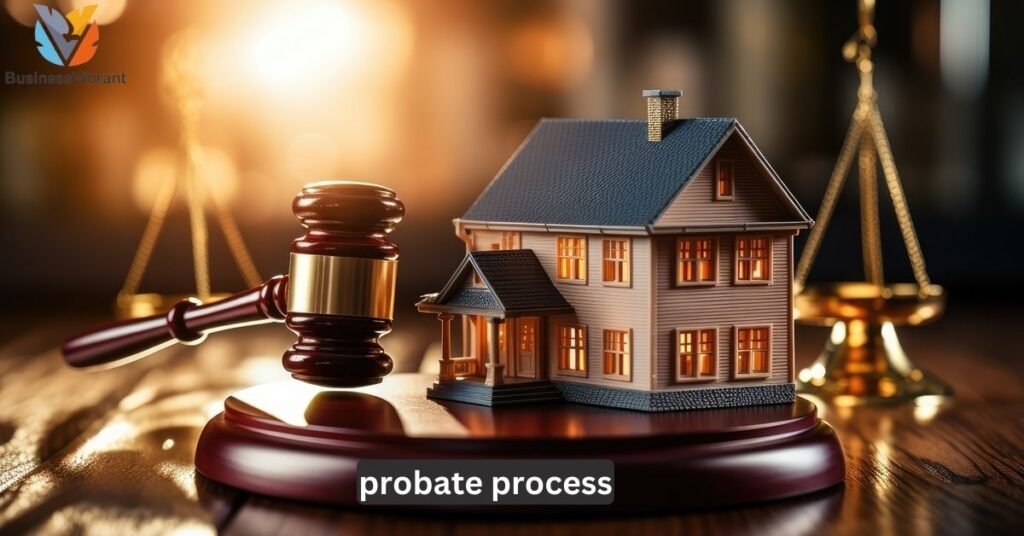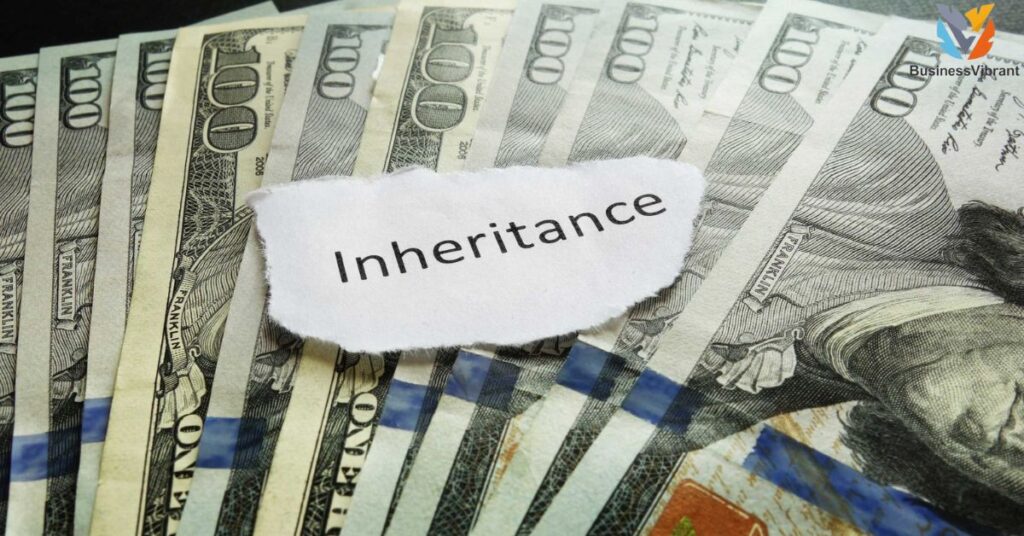Inheritance checks are sent by mail or electronically by the executor of the estate. The executor of the will or estate administrator handles the distribution of these checks. Beneficiaries may receive their inheritance depending on the executor’s chosen method.
The process of mailing inheritance checks, shedding light on the meticulous steps taken by executors to ensure timely and secure delivery. From legal protocols to logistical considerations, let’s enter into the fascinating of estate distribution. The path these invaluable assets take before reaching their rightful owners.
Table of Contents
Role of the Executor
The executor plays a crucial role in managing the affairs of a deceased person’s estate. They are appointed either by the deceased’s will or by the court if there is no will. The executor’s responsibilities include gathering and managing assets, paying debts and taxes, and distributing the remaining assets.
- The executor manages the affairs of the deceased person’s estate.
- They are appointed by the deceased’s will or by the court.
- Responsibilities include gathering and managing assets, paying debts and taxes.
- Distributing remaining assets to beneficiaries according to the will or laws of inheritance.
Their responsibilities encompass ensuring that the estate’s affairs are handled meticulously and in accordance with the law, providing crucial guidance and support to grieving families during the probate process.
Distribution of Assets
Distribution of assets refers to the allocation of property and possessions after someone passes away. It’s a crucial step in the probate process of the estate. Their role involves identifying all assets, determining their value, and legal guidelines.
The executor has inventoried and appraised the assets, they must settle any outstanding debts or obligations of the deceased using these assets. This may involve paying off loans, medical bills, taxes, and other liabilities. Only after settling these obligations can the executor proceed with distributing the remaining assets.
The distribution of assets can occur in various ways depending on the terms of the will. Assets may be distributed outright to beneficiaries, sold with the proceeds divided among the heirs. The executor ensure that the distribution process is conducted fairly, transparently.
Use of Certified Mail

Certified mail provides a secure and trackable method for sending important documents or parcels. This service requires the recipient to sign for the mail upon delivery ensuring accountability. It’s commonly used for legal notices, contracts, official correspondence, and sensitive materials where confirmation of delivery is essential.
The use of certified mail offers peace of mind to both senders and recipients by offering a level of security and verification. This method helps mitigate the risk of loss, theft, or disputes regarding delivery, as each step of the process is documented and recorded. In legal, business, or personal contexts, certified mail serves as a reliable means of communication.
Related Content: Verizon Layoffs 2023: December Updates
How does Inheritance work in 2023?
Inheritance in 2023 operates similarly to previous years but with advancements in digital processes. Executors manage assets, settle debts, and distribute legacy according to the deceased’s will or legal guidelines.
Technology streamlines tasks such as asset tracking and document management, ensuring smoother estate administration. Overall, while the fundamental principles remain unchanged, modern tools enhance efficiency in the inheritance process in 2023.
Probate Process

The probate process is the legal procedure for administering a deceased person’s estate. It involves validating the deceased’s will, identifying assets, settling debts, and distributing remaining assets to heirs or beneficiaries. This process ensures that the deceased’s wishes are carried out. And assets are transferred to the rightful recipients in an orderly manner.
Who Issues an Inheritance Check?
An inheritance check is issued by the executor of the deceased individual’s estate. This individual is typically named in the deceased’s will or appointed by the court if there is no will. The executor’s primary responsibility is to oversee the distribution of assets. Their role ensures that the transfer of assets is conducted accurately in applicable laws.
When working with others, Snapseed QR codes allow for smooth collaboration. You can share specific edits and styles with your team, helping everyone stay on the same page. It’s like having a shared editing toolkit!
Importance of Authentication and Validation
Authentication and validation are vital safeguards in maintaining trust, confidentiality, and reliability in digital systems and transactions.
- Authentication and validation are crucial in ensuring the accuracy and integrity of data.
- They help confirm the identity of users or entities accessing systems or information.
- Authentication verifies the credentials provided by users, such as usernames and passwords.
- Validation checks the integrity and accuracy of data inputted into systems or applications.
- Both processes are essential for preventing unauthorized access, data breaches of information systems.
How Long Does it Take to Receive Inheritance from a Trust?
Receiving inheritance from a trust typically depends on several factors. The duration may vary based on the complexity of the trust and the specific instructions outlined in the trust document.
In simpler cases, beneficiaries may receive their will within a few weeks to a few months after the trust settlor’s passing. In more complex scenarios or if legal challenges arise, the process may take longer, extending to several months or even years.
Related Content: WHAT CAN A PROBATION OFFICER NOT DO? THE TRUTH!
How do You Receive Inheritance Money?
Receiving inheritance money involves several steps. The executor of the deceased’s estate manages the distribution process. Then, beneficiaries receive their right of will through direct deposit, checks, or transfers into designated bank accounts. It’s essential to communicate with the executor and follow legal procedures.
Inheritance Check Cashing
Cashing an inheritance check is a straightforward process typically managed by the bank. First, endorse the check by signing the back. Then, present valid identification at the bank where the account is held or a branch of the issuing bank.

The bank may place a hold on the funds to verify the check’s authenticity and ensure sufficient funds are available. Once cleared, the funds are deposited into the designated account or provided in cash. It’s important to ensure proper endorsement and have necessary documentation to facilitate a smooth transaction.
How Long Does an Heir Have to Claim Their Inheritance?
An heir generally has an indefinite timeframe to claim their will, as there is no strict deadline in most cases. It’s advisable to act promptly once informed of the inheritance to avoid potential complications. The process typically begins with the probate of the deceased’s will
Delays in claiming legacy could occur due to legal procedures, disputes, or locating beneficiaries. It’s crucial for heirs to stay informed, communicate with the executor or administrator, and provide necessary documentation to facilitate the timely distribution of their will.
Can the State Take My Inheritance?
Yes, the state can claim a portion of your inheritance. This typically happens if you owe outstanding debts, taxes, or child support. State laws vary, but creditors may have the right to collect debts from your right before it reaches you. In most cases, your will is protected from government seizure if you don’t have any outstanding obligations.
Inheritance Disbursement
Inheritance disbursement involves the distribution of assets to beneficiaries after the probate process. The executor oversees this process, ensuring assets are allocated according to the deceased’s will or legal guidelines. Disbursement may include cash, property, investments, or other assets, depending on the deceased’s estate.
How Long Does it Take to Get Inheritance After the House Has Been Sold?
Getting will after a house is sold can vary in timing. Beneficiaries may receive their share once the sale is finalized, which can take a few weeks to several months depending on the complexity of the sale process. After the sale, the executor of the estate manages the distribution of proceeds among beneficiaries according to the deceased’s will or legal guidelines.
What is it Called When You Receive Money from a Will?
Receiving money from a will is called legacy or receiving an inheritance. It’s the transfer of assets or funds to beneficiaries as specified in the deceased person’s will. This process typically occurs after the probate process, where the will is validated, and any outstanding debts or taxes are settled.
How Long After Probate Granted Will I Get My Money?
After probate is granted, the timing of receiving your money can vary. It may take a few weeks to several months, depending on factors like the complexity of the estate and any potential disputes. Once the probate process is complete, the executor can distribute funds to beneficiaries according to the deceased’s will or legal guidelines.
Final Distribution of Estate Assets
The final distribution of estate assets is the last step in the probate process. Once all debts, taxes, and expenses are settled, the executor distributes remaining assets to beneficiaries. This distribution typically occurs according to the deceased’s will or state law if there is no will. Beneficiaries may receive assets such as cash, property, or investments, depending on the estate’s holdings.
Frequently Asked Questions
How are inheritance checks mailed?
Inheritance checks are typically mailed by the executor of the estate.
Who mails inheritance checks?
The executor of the deceased’s estate is responsible for mailing checks.
What steps are involved in mailing inheritance checks?
The executor verifies legal documents and confirms mailing addresses before sending out the checks.
Can inheritance checks be sent electronically?
Yes, it checks can sometimes be sent electronically, depending on the preferences and arrangements made by the executor.
How long does it take to receive an inheritance check by mail?
The timing of receiving an your right of property check by mail varies, but it typically takes a few days to a couple of weeks once mailed by the executor.
Can I request a different method of receiving my inheritance instead of a check?
Yes, depending on the executor’s policies and arrangements, you may be able to request alternative methods such as direct deposit or electronic transfer for receiving your will.
Conclusion
The process of how inheritance checks are mailed is pivotal in ensuring the efficient and secure transfer of assets to rightful beneficiaries. Executors play a crucial role in managing this process, verifying legal documentation and confirming mailing addresses before dispatching the checks.
The use of postal services or electronic transfers offers flexibility and convenience in delivering legacy funds. Beneficiaries should communicate promptly with the executor to provide necessary information and preferences regarding the method of receiving their inheritance.
While the timing of receiving inheritance checks may vary, clear communication and cooperation between beneficiaries and the executor can help facilitate a smooth and timely distribution process. The steps involved in mailing inheritance checks empowers beneficiaries to navigate the process confidently.
